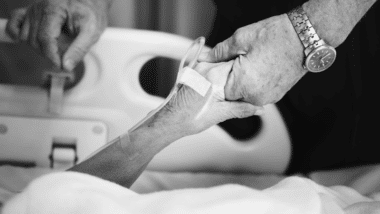California state has been ordered to pay $300,000 in legal costs to Christian healthcare professionals, after a US court ruled it can no longer force doctors to find assistance for terminally ill patients to kill themselves.
The Christian Medical & Dental Associations, along with a Christian hospice doctor, launched legal action against state officials last year, after a Bill came into law forcing doctors with a conscientious objection to refer patients who request assisted suicide to a different provider.
But a federal District Court has now prohibited California “from enforcing any criminal or civil punishment, including professional discipline or licensing sanction” against a medic for not documenting or referring a request for assisted suicide, or providing further information about it.
‘Significant victory’
Kevin Theriot, Senior Counsel at religious liberty group Alliance Defending Freedom, which brought the case, said: “Our clients seek to live out their faith in their medical practice, and that includes valuing every human life entrusted to their care.
“Participating in physician-assisted suicide very clearly would violate their consciences. This is a significant victory for religious and conscientious physicians in California. The government can’t force any health care professional to act against his faith or medical ethics.”
Between 2016 and 2021, more than 2,400 Californians killed themselves by taking lethal drugs prescribed by a doctor under the state’s End of Life Option Act.
‘Foundation’
Last year, an international medical ethics body supported the right of physicians with conscientious objections not to refer patients for procedures such as abortions or assisted suicide.
Following a three-year process, the World Medical Association’s General Assembly unanimously approved an update to the International Code of Medical Ethics, which is regarded as “the foundation of ethical principles for physicians worldwide”.
The updated code now acknowledges “on some issues there are profound moral dilemmas concerning which physicians and patients may hold deeply considered but conflicting conscientious beliefs”.
ROI palliative care experts tell Parliament: ‘We offer end-of-life care, not suicide plans’
Columnist: ‘Scotland must back away from cliff-edge of assisted suicide’
Plan 75 film shows ‘a disturbingly realistic glimpse’ of assisted suicide


